About the organisation
The Australian Institute of Marine Science stands at the forefront of tropical marine research, pushing the boundaries of what we know about the world beneath the waves. They provide in-depth insights into Australia’s tropical seas., and cutting-edge, globally applicable research solutions. Spanning from Ningaloo Reef in the west, over the Top End, and down to the Great Barrier Reef, our researchers tackle the big, complex, and new challenges facing Australia’s iconic marine environments across our expansive, often remote tropical waters.
While leading in marine science, they are also looking ahead, aiming to enhance the health of our oceans and safeguard our coral reefs against the impacts of climate change.
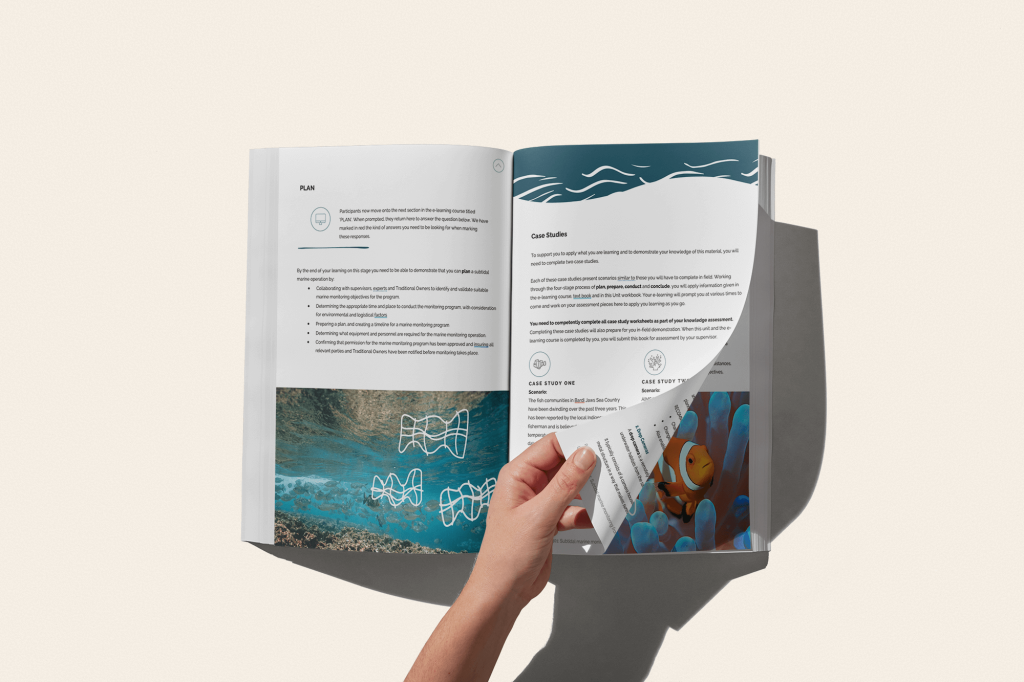
The need
We took on the mission to craft training materials for several units tailored for Indigenous rangers. These units would be key components of Certificate III in Conservation and Ecosystem Management and represent our commitment to delivering a learning experience that resonates deeply with the unique needs and perspectives of Indigenous learners. Our goal was to sketch out a clear path from the initial concept to a fully realized educational journey, ensuring clarity and confidence every step of the way. It’s crucial for us to lay out our game plan upfront, ensuring that our direction and intentions are fully aligned with your expectations and standards.
The learning solution
We worked hand-in-hand with these guys, employing an iterative approach to ensure the content was both engaging and accurate. This close collaboration allowed for continuous feedback and refinements, ensuring consistency and quality across all modules. We made sure our content creation was dynamic with a custom-made introductory video, providing learners with a clear overview of the topic. To enhance engagement and retention, funky GIFs were used as an appealing alternative to still images.
We also developed custom graphics to simplify complex concepts, making them more digestible and avoiding the pitfall of dense text blocks. Knowledge checks with informative feedback were integrated within lessons to reinforce learning. Additionally, real-life case studies were employed to further consolidate understanding of the material.
To top it all off, a cornerstone of our development process was ensuring all content complied with WCAG 2.2 standards, making our modules accessible to a wide audience.
The outcome
Our approach was holistic and learner-centric, designed to bridge the gap between current knowledge levels and the targeted outcomes of the training. Recognizing the diverse backgrounds and experiences of Indigenous rangers, we envisioned an e-learning course supplemented by practical, field-based resources. This combination gave a rounded and immersive learning experience that honours Indigenous pedagogical principles.
Central to the design was the Aboriginal 8 Ways of Learning, a pedagogical framework that shaped our content creation and course structure. We were able to weave stories, metaphors, symbols, and images throughout the online course, encouraging learners to engage deeply with the content. This method is about fostering a personal connection to the learning material, enabling learners to construct meaning in a way that’s relevant to them.
We provided resources designed for use in the field, promoting exploration and discovery in a non-linear fashion. This approach allowed the learners to navigate the material in a way that feels natural and intuitive to them, further enriching their learning experience.
Fieldwork was planned to reinforce online learning and incorporate Sea Country knowledge, emphasizing skill demonstration through nonverbal learning and community engagement.
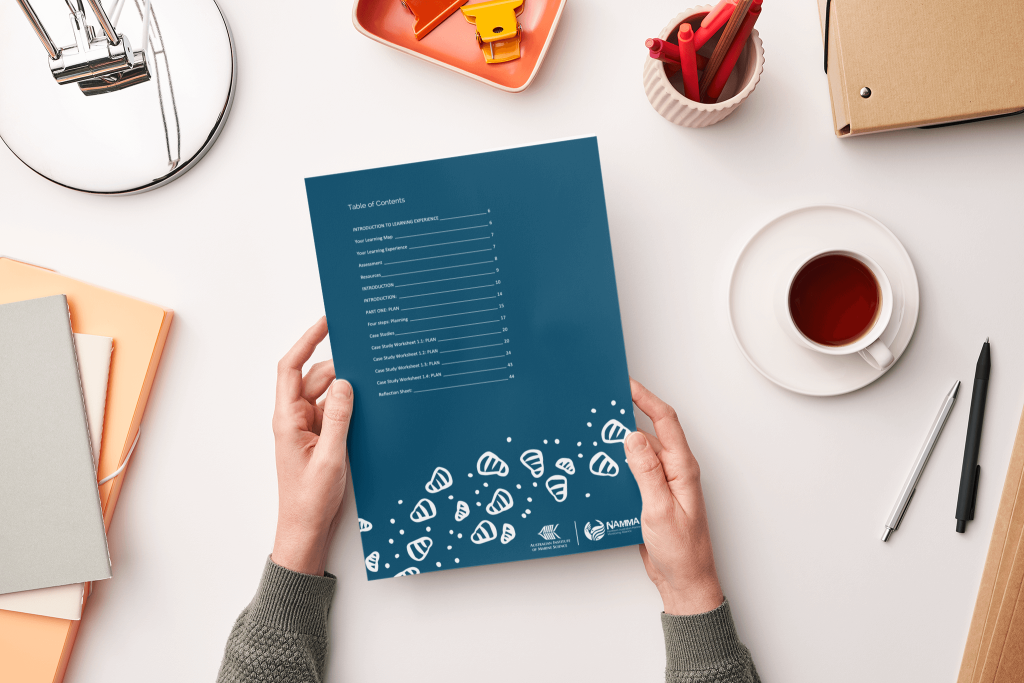

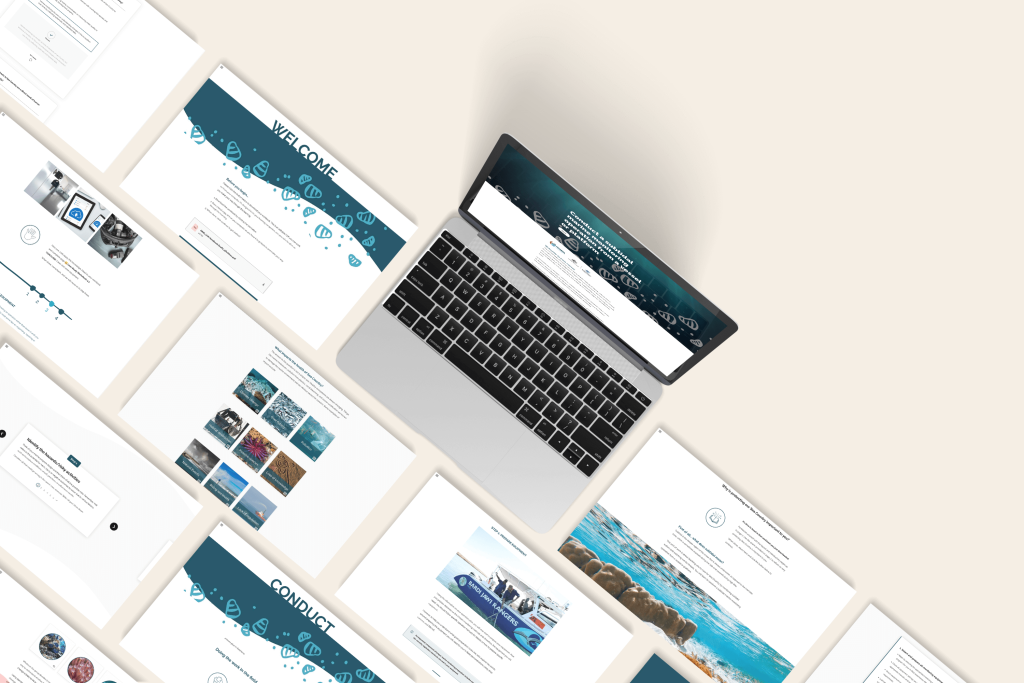
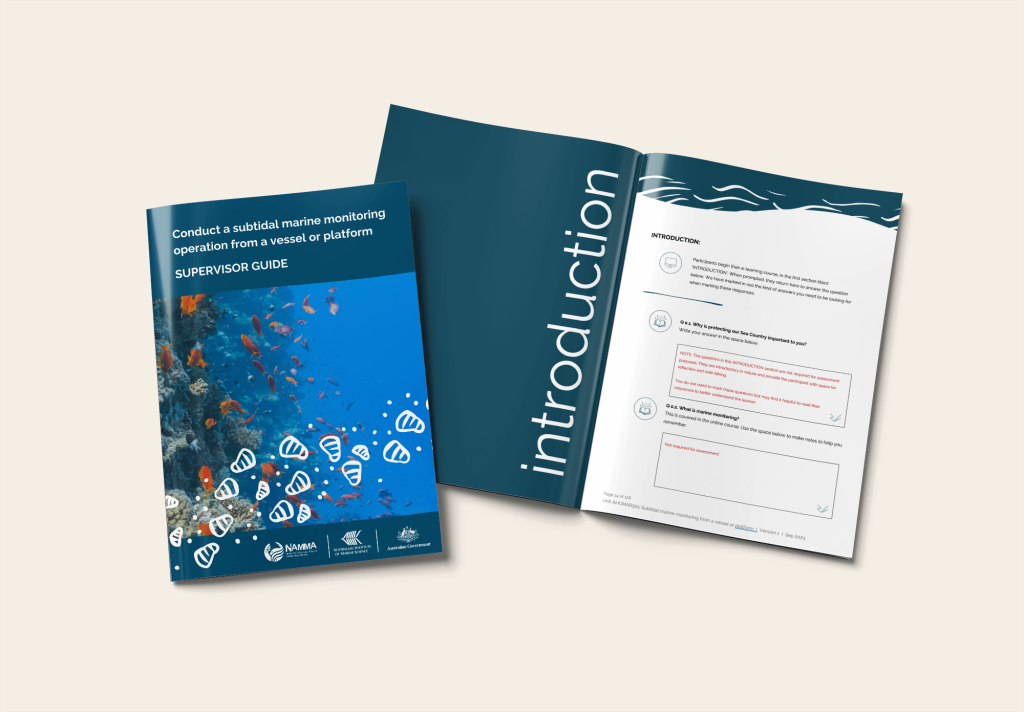
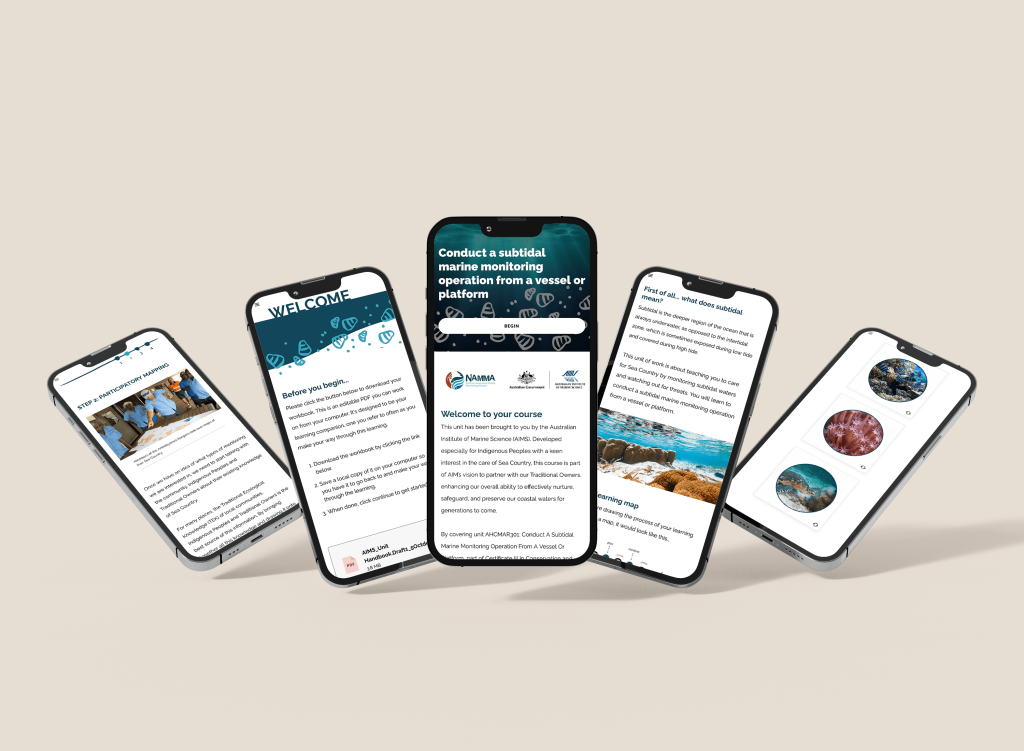
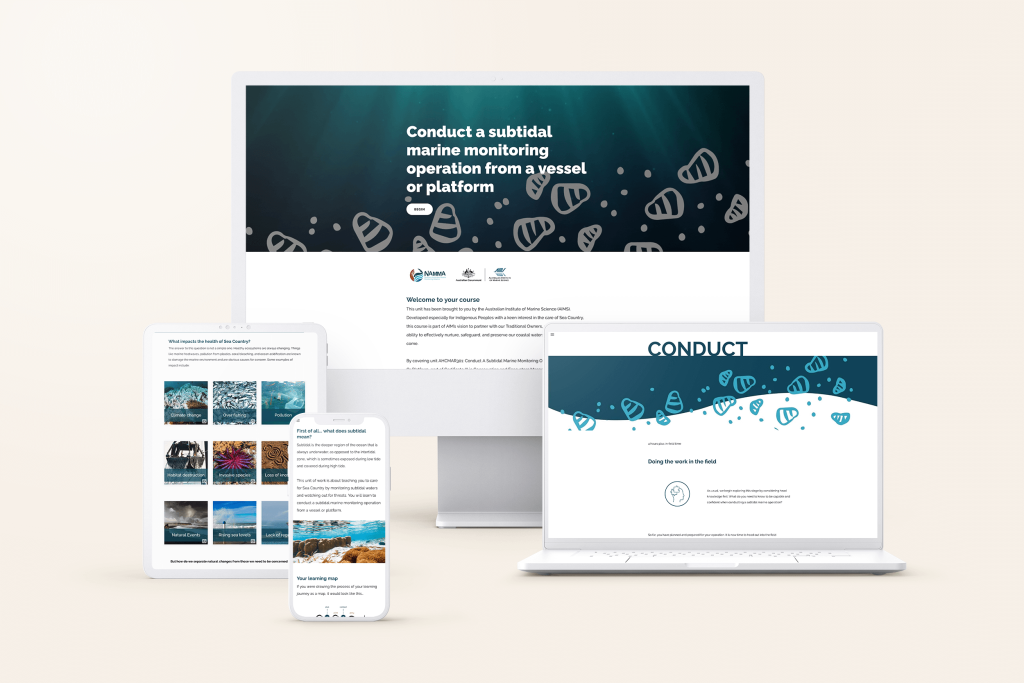
The team

Bec: Senior Instructional Designer

Michael: Project Manager

